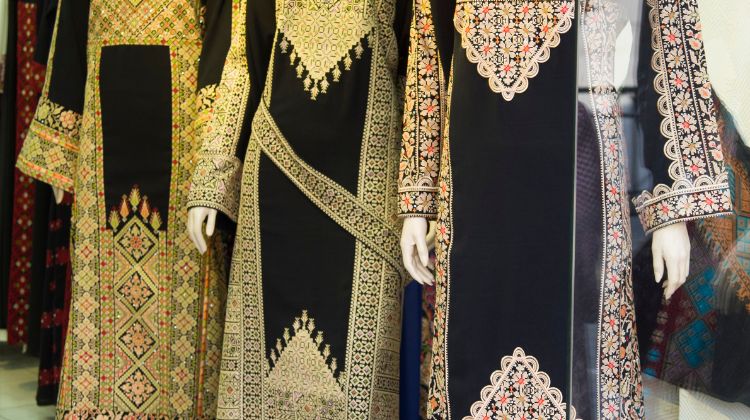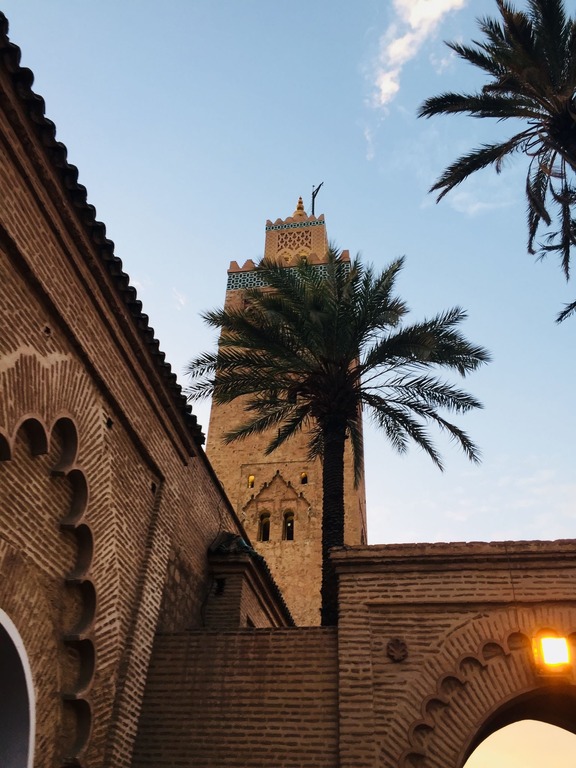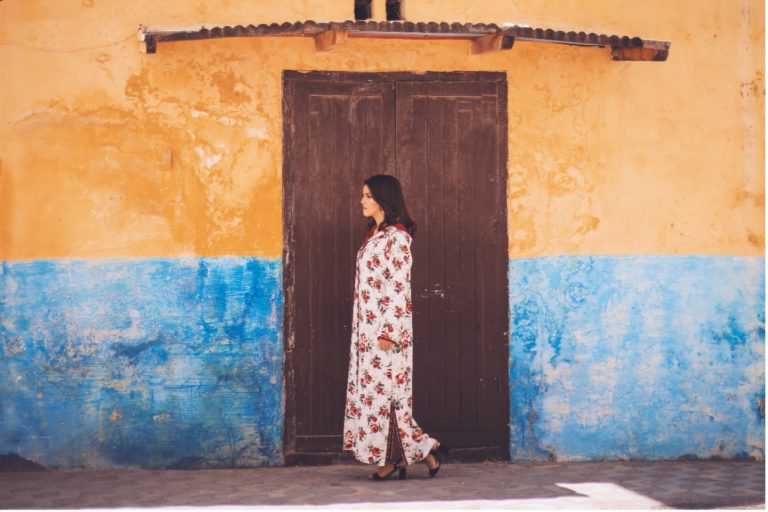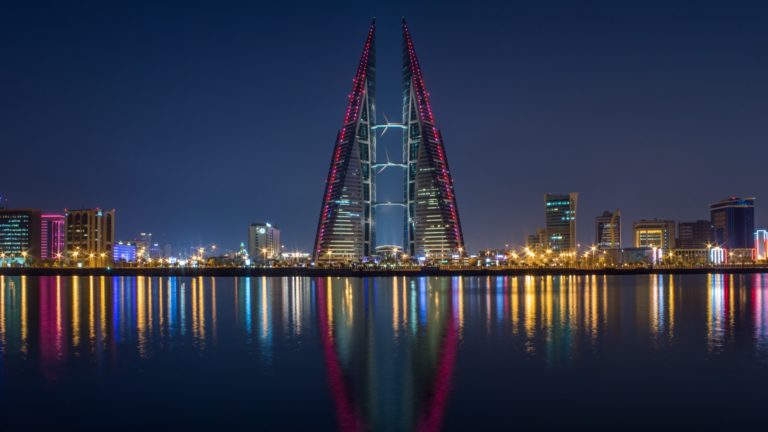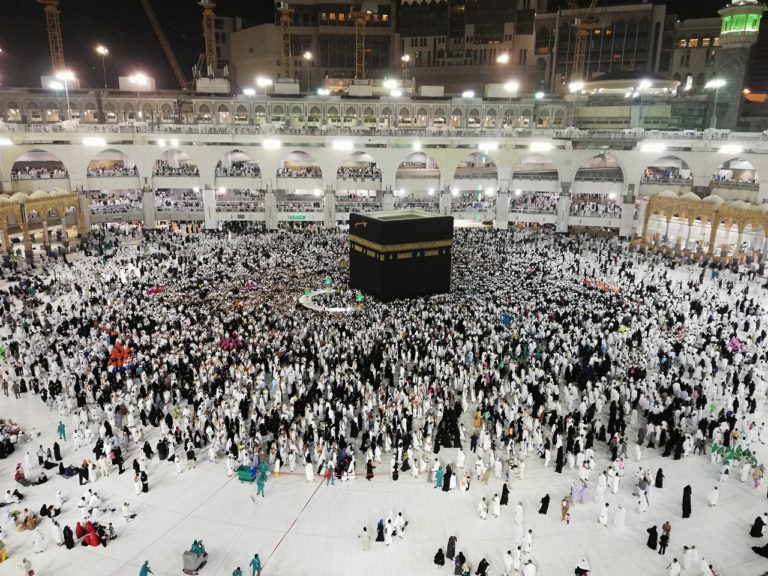Shopping in Morocco’s Medina
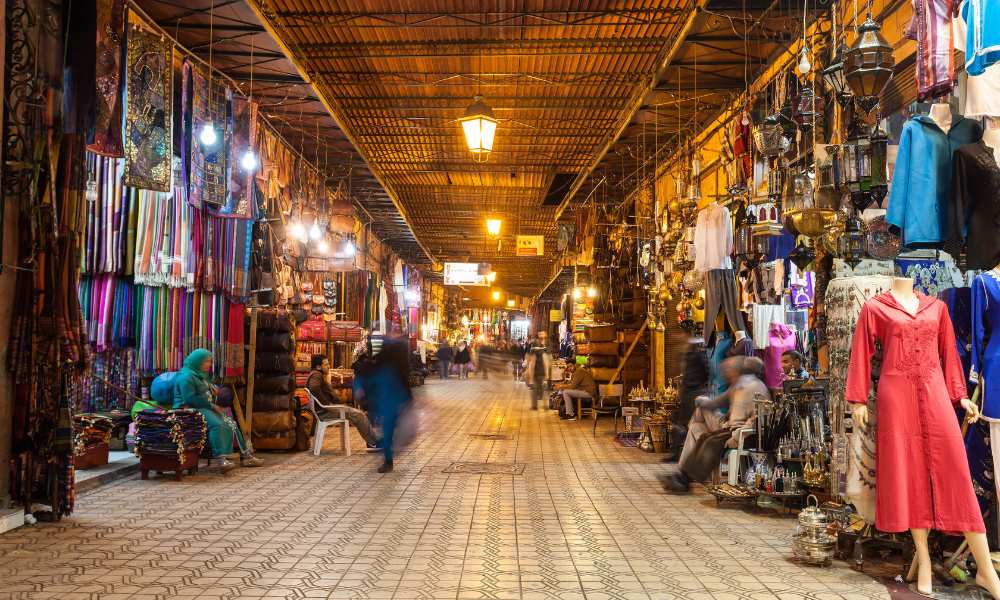
For many, Morocco’s medinas conjure up images that they’ve seen in movies like Casablanca, Indiana Jones, or even in the book, The Alchemist, by Paulo Coelho, whose hero goes on a quest across the Moroccan landscape.
You may think of ancient ruins and old clay Kasbah walls standing in the shadows of palm trees. You may imagine shadowy alleyways echoing with the call to prayer.
And at some point, if you happen to go to Marrakesh’s old medina, you’ll hear the high-pitched flutes of snake charmers.
Walking past them you’ll find yourself dodging the incessant motorbikes tooting their horns as you step aside, just able to miss bumping into a nicely stacked table of bright blue glazed ceramics.
No matter your ideas about Morocco before you arrive, you will find yourself curious to explore one or more of its old city cities.
Morocco’s medinas offer the most interesting way to experience life as a local and to get a taste of what it might have been like hundreds of years ago in old Morocco.
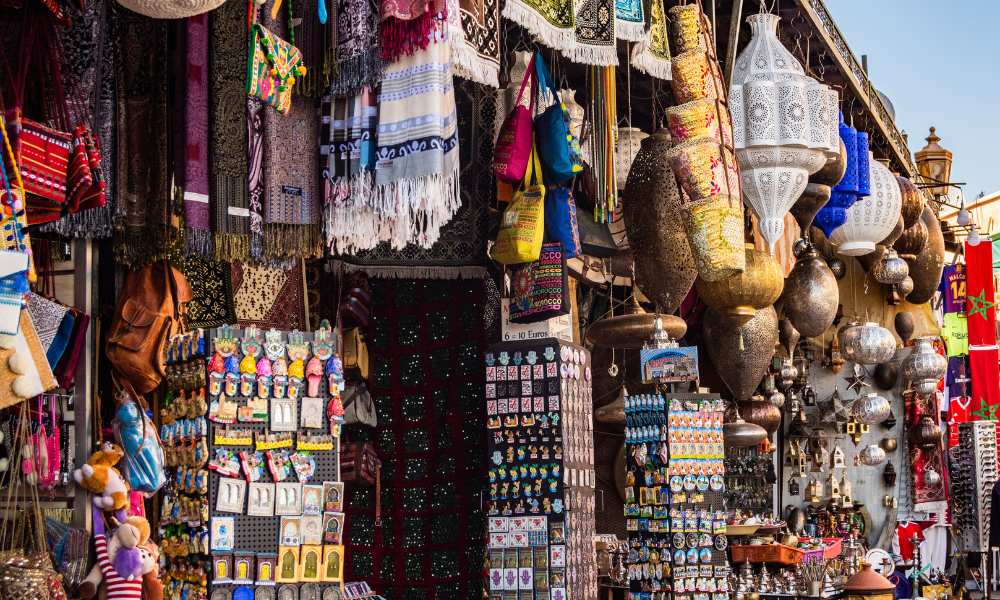
Table of Contents
Which are Morocco’s most popular old cities?
Morocco’s most popular old cities are the four imperial, or royal cities, which include Fez, Marrakesh, Meknes, and Morocco’s modern-day capital, Rabat.
In addition to these UNESCO world heritage site cities, tourists also flock to the medinas of the seaside cities of Tangier and Essaouira.
What are popular items in the old cities?
Wandering through the hundreds of maze-like alleyways of the medina’s souks will take well over a day in the medina of Marrakesh, which is said to hold over 2,000 different shops.
Among t-shirts and other touristic trinkets, you may at any point come across what looks like Aladdin’s hidden treasures. You’ll wind alongside brass lamps, old coins, and dangly silver earrings.
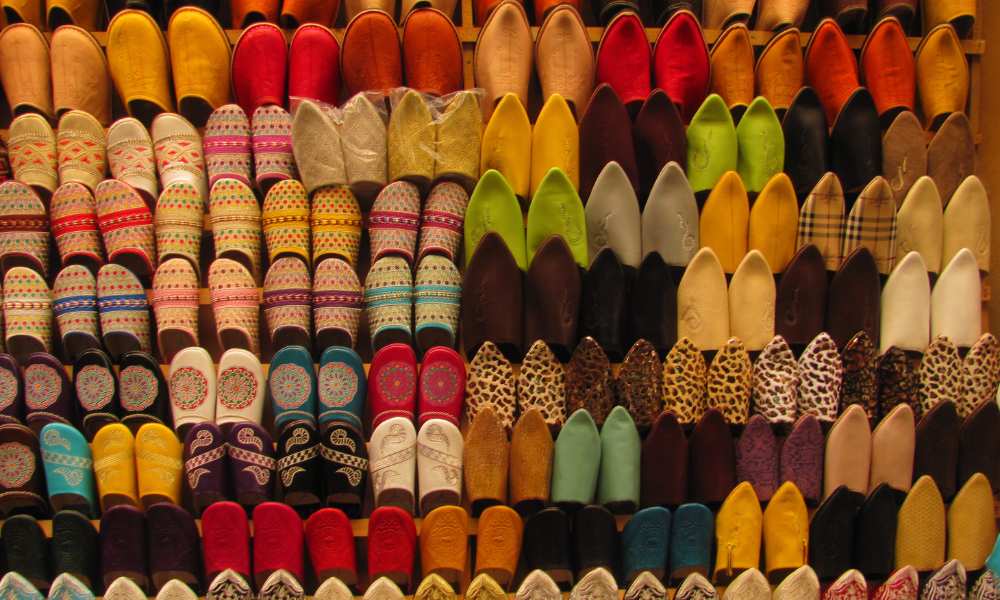
Some of your best deals will be on items that you just can’t find anywhere else in the world. Some of the most popular items to buy in any of Morocco’s medinas are argan oil, babouche slippers that come died in all kinds of earthy tones as well as bright imaginary hues, carpets of all shapes and sizes, leather goods, and tea sets — some already neatly wrapped and ready to take home to regale your guests.
Preparing to shop in the medina.
Seasoned expats and local shoppers suggest that before you head out you: eat well, take along something to drink, wear comfortable shoes, and wear clothes that are not too flashy – after all you don’t want to stand out as a tourist.
When should I shop?
Meanwhile, the best time to shop is just after shops open or just before they close. Around 9:00 or 9:30 AM, shopkeepers will be eager to make their first sale and more willing to bargain.
They often feel that the first sale brings them luck for future sales throughout the day. Similarly, just before closing time, shopkeepers are keen to make a final sale in order to pick up something nice to eat to feed their families.
Shop Saturday through Thursday as Friday’s many shops are closed for the holy day. You may find on Friday that shopping at night is your best bet!
How do I haggle?
Seasoned shoppers suggest offering at least a third less than what the shopkeeper initially asks. If you really want to bargain like a Moroccan however, you’ll want to decide what you’re willing to pay for an item before even walking into a shop.
From there it’s a bid for how low the shopkeeper will come down and how much you’ll bid up.
Remember, just keep it all light. This is the way business is done in the souks, Moroccans even haggle when buying fruits, vegetables, and meats! If the two of you can’t agree on a price, politely say, “La’a, shukran,” and head to the next shop.
Perhaps, the shopkeeper may even call you back and give you the price you haggled for.
An extra insider tip that both regular medina shoppers and previous shopkeepers have given is not to accept tea from a shopkeeper before a deal is made.
Now-seasoned expat shoppers say that during their first shopping experiences in the medina accepting tea at the beginning of a shopping experience made them feel obligated to buy something. So they recommend waiting until after the sale is finalized before accepting tea.
What if I don’t want to haggle?
But what if you don’t want to haggle? Are you going to get ripped off?
Shopkeepers typically work on commission. This explains why they will try to get any reasonable price they can. So knowing that most people will attempt to haggle, a shopkeeper will typically mark up a product at least three times the average retail price.
However, chances are that the prices in the medina are low enough that you’re still going to get a good deal. If you don’t want to go all-in with your haggling, seasoned shoppers suggest that you offer 50% of the asking price.
Most shopkeepers will gladly accept 50% with very little fuss as they’re still making a substantial profit. Likewise, you’ll also save a bit and be able to spend it at another shop. You’ll both walk away happy!
As your day wandering through the labyrinth of the old city comes to an end, maybe stop at one of those shops selling the cute Aladdin’s lamps and give one a rub – who knows the mysteries that may await you along your next turn down the medina’s intriguing alleyways.

